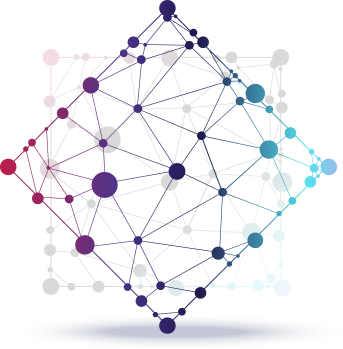- Revolutionizing Perspectives: Critical Business and Tech News Shaping Tomorrow’s Landscape.
- The Rise of Artificial Intelligence in Business Operations
- The Expanding Metaverse and its Commercial Implications
- Cybersecurity Threats and Data Breach Prevention
- The Role of Blockchain in Enhancing Data Security
- The Importance of Employee Cybersecurity Training
- Sustainable Technology and the Green Revolution
Revolutionizing Perspectives: Critical Business and Tech News Shaping Tomorrow’s Landscape.
In today’s rapidly evolving global landscape, staying informed about current events is paramount for both personal and professional success. The constant flow of information, often referred to as the ‘news’, significantly impacts financial markets, technological advancements, and geopolitical strategies. Understanding these trends is no longer a luxury but a necessity for navigating a complex world. This article explores critical business and tech developments, providing insights into how these shifts are shaping tomorrow’s landscape, and empowering informed decision-making.
The Rise of Artificial Intelligence in Business Operations
Artificial Intelligence (AI) is rapidly transforming business operations across numerous sectors. From automating mundane tasks to facilitating data-driven decision-making, AI offers unprecedented opportunities for increased efficiency and profitability. The integration of machine learning algorithms into platforms like Salesforce and Microsoft Dynamics 365 exemplifies this trend, allowing businesses to personalize customer interactions and optimize their sales strategies. This shift requires businesses to adapt and invest in reskilling their workforce to leverage the benefits of AI effectively.
However, the adoption of AI is not without its challenges. Concerns surrounding data privacy, algorithmic bias, and job displacement necessitate a thoughtful and ethical approach to AI implementation. Organizations must prioritize transparency and accountability in their AI systems to build trust with stakeholders and mitigate potential risks. Furthermore, the complexities of deploying and maintaining AI solutions require specialized expertise, creating a demand for skilled AI professionals.
| Predictive Analytics | Finance | Fraud Detection & Risk Management |
| Chatbots & Virtual Assistants | Customer Service | Improved Customer Engagement & Support |
| Automated Supply Chain Management | Logistics | Enhanced Efficiency & Reduced Costs |
| Personalized Marketing | Retail | Increased Sales & Customer Loyalty |
The Expanding Metaverse and its Commercial Implications
The metaverse, a persistent, immersive virtual world, is quickly transitioning from a futuristic concept to a tangible commercial reality. Companies like Meta (formerly Facebook) are heavily investing in the development of metaverse platforms, envisioning a future where individuals seamlessly interact with each other and digital content in a virtual environment. This opens up new avenues for e-commerce, entertainment, and social interaction, fundamentally altering how consumers engage with brands and experiences. The potential for creating entirely new economies within the metaverse is also significant.
Early adopters of metaverse technologies are experimenting with virtual storefronts, digital collectibles (NFTs), and immersive advertising experiences. While the metaverse is still in its nascent stages, its potential impact on various industries is undeniable. Challenges remain in terms of technological infrastructure, interoperability between platforms, and the need for robust security measures to protect users’ data and digital assets. The evolution of the metaverse will depend on overcoming these hurdles and fostering a collaborative ecosystem among developers and stakeholders.
- Virtual Real Estate: Buying, selling, and developing land within the metaverse.
- Decentralized Finance (DeFi): Utilizing blockchain technology for financial transactions within virtual worlds.
- Digital Fashion: Creating and trading virtual clothing and accessories for avatars.
- Immersive Entertainment: Attending virtual concerts, events, and gaming experiences.
Cybersecurity Threats and Data Breach Prevention
The increasing reliance on digital technologies has also led to a surge in cybersecurity threats. Data breaches, ransomware attacks, and phishing schemes are becoming increasingly sophisticated, posing significant risks to businesses and individuals. Protecting sensitive data requires a multi-layered approach to cybersecurity, encompassing robust firewalls, intrusion detection systems, and employee training programs. Organizations are increasingly adopting zero-trust security models, which assume that no user or device can be trusted by default, requiring strict verification before granting access to resources.
The financial consequences of data breaches can be substantial, including regulatory fines, legal liabilities, and reputational damage. In addition to the direct costs, businesses must also invest in remediation efforts, such as data recovery and customer notification. Proactive threat intelligence and vulnerability assessments are crucial for identifying and mitigating potential security gaps. Collaboration between government agencies, cybersecurity firms, and businesses is also essential for sharing information and coordinating responses to emerging threats.
The Role of Blockchain in Enhancing Data Security
Blockchain technology, originally developed for cryptocurrencies, offers a promising solution for enhancing data security and transparency. Its decentralized and immutable nature makes it extremely difficult for hackers to tamper with data stored on a blockchain. Applications of blockchain in data security include supply chain tracking, identity management, and secure voting systems. By providing a tamper-proof audit trail, blockchain can help organizations demonstrate compliance with data privacy regulations and build trust with their stakeholders. However, the scalability and complexity of blockchain technology remain challenges to widespread adoption.
The Importance of Employee Cybersecurity Training
Despite the advancements in cybersecurity technologies, human error remains a significant vulnerability. Employees are often the weakest link in the security chain, susceptible to phishing attacks and social engineering tactics. Regular cybersecurity training programs are essential for educating employees about potential threats and best practices for protecting sensitive data. These programs should cover topics such as password management, email security, and data handling protocols. Creating a culture of cybersecurity awareness within an organization is crucial for fostering a proactive security posture.
Sustainable Technology and the Green Revolution
The growing awareness of climate change is driving a demand for sustainable technologies and environmentally friendly practices. Businesses are increasingly adopting renewable energy sources, reducing their carbon footprint, and developing eco-friendly products and services. The development of electric vehicles (EVs), renewable energy storage solutions, and smart grids are all contributing to a greener future. Investors are also prioritizing companies with strong environmental, social, and governance (ESG) performance, recognizing the long-term value of sustainability.
Governments around the world are enacting policies to incentivize the adoption of sustainable technologies and promote energy efficiency. These policies include tax credits for renewable energy investments, regulations on carbon emissions, and mandates for energy-efficient products. Technological innovations such as carbon capture and storage (CCS) are also showing promise in reducing greenhouse gas emissions. The transition to a sustainable economy will require a collaborative effort from businesses, governments, and individuals.
- Reduce energy consumption through energy-efficient appliances and practices.
- Invest in renewable energy sources such as solar and wind power.
- Adopt circular economy principles to minimize waste and maximize resource utilization.
- Develop and implement sustainable supply chain management practices.
- Promote environmental awareness and responsibility among employees and consumers.
The convergence of these technological and business trends is shaping a future characterized by greater connectivity, automation, and sustainability. Staying ahead of these developments requires continuous learning, adaptation, and a willingness to embrace innovation.



